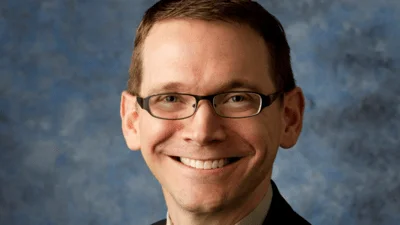Jodey Arrington - Chairman of the House Budget Committee | Official U.S. House headshot
Jodey Arrington - Chairman of the House Budget Committee | Official U.S. House headshot
On May 23, 2024, the House Budget Committee, chaired by Jodey Arrington (R-TX) and Health Care Task Force Chair Michael Burgess (R-TX), convened a hearing titled “Breaking up Health Care Monopolies: Examining the Budgetary Effects of Health Care Consolidation.” The session aimed to scrutinize the budgetary impacts of health care market consolidation and explore policy options to enhance competition.
The United States' health care spending trajectory is considered unsustainable for both taxpayers and patients. In 2022, total health care spending exceeded $4.5 trillion, accounting for 17.3 percent of GDP or $13,492 per person. Projections indicate that national health spending will grow at a rate of 5.4 percent over the next decade, outpacing the GDP growth rate of 4.6 percent.
Chairman Arrington highlighted the fiscal challenges posed by federal health care spending: “To reverse the curse, we must address the biggest driver of our debt: federal health care spending. The Congressional Budget Office projects that spending on major health care programs will nearly double from $1.7 trillion in 2024 to $3.2 trillion in 2034.” He noted that there were over 1,000 hospital mergers between 2002 and 2020, with research indicating an average price increase of $521 for hospital services post-merger.
Health Care Task Force Chair Michael Burgess referenced past warnings about consolidation: “Scott Gottlieb... warned us that this legislation... would drive consolidation in the healthcare space, and the results would not be good.”
Representative Buddy Carter shared his perspective as a pharmacist: “I was the one who had to watch a senior citizen decide between buying their medicine and buying their groceries... Give me one example of where consolidation in healthcare has saved money.” Dr. Chapin White from the Congressional Budget Office responded, “I can’t think of one.”
Representative Drew Ferguson questioned current regulatory frameworks: “Shouldn't we be looking at breaking those rules apart and creating real transparency and competition within the system?”
Representative Chip Roy criticized market conditions: “We have largely destroyed the market and competition… it’s not free market.” Dr Benedic Ippolito from AEI agreed on regulatory impacts on prices.
Representative Tom McClintock cited Milton Friedman’s views on technology and pricing: “In every other sector, as technology advances, prices go down… All this government intervention and spending has made costs higher.”
Representative Ralph Norman called for significant changes: “This medical field is on a collision course. We can’t afford it.”
The House Budget Committee aims to address these issues through policies such as bipartisan site-neutral payment reform under its "Reverse the Curse" balanced budget initiative. This reform could save taxpayers over $150 billion in ten years while reducing out-of-pocket costs for seniors.
In December, the House passed the Lower Costs, More Transparency Act which includes measures to combat consolidation and promote free-market competition by equalizing payments for physician-administered drugs in Medicare and increasing price transparency.



 Alerts Sign-up
Alerts Sign-up